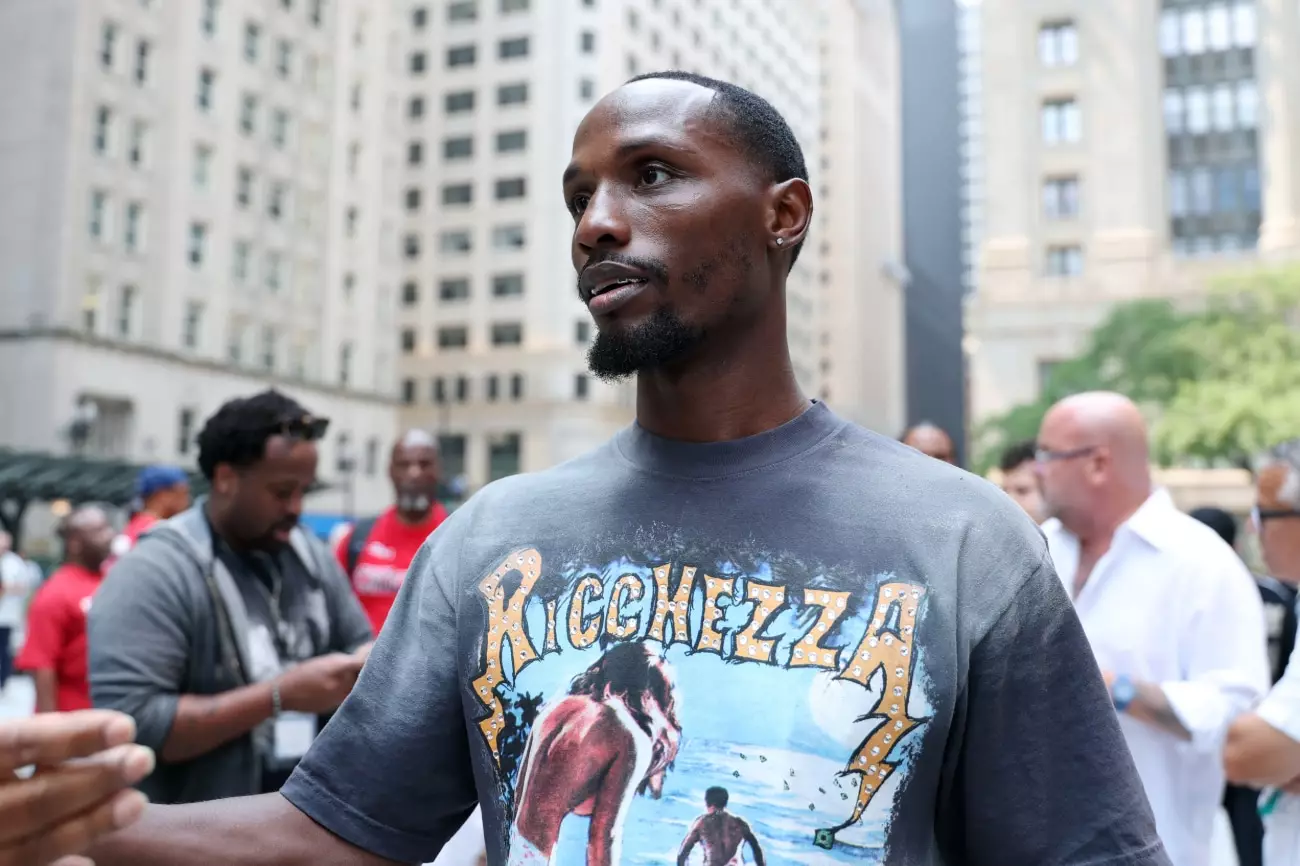Boxing is a sport that champions resilience, determination, and the relentless pursuit of greatness. For fighters like Kenneth Sims Jr., every bout is not merely a contest of physical skill but a testament to his unyielding desire to carve out a legacy. While much of the media coverage fixates on titles and rankings, beneath this surface lies a deeper narrative—a journey fueled by ambitions that transcend the ring. Sims’ upcoming clash with Oscar Duarte isn’t merely about winning another fight; it’s a pivotal chapter in his personal crusade to prove his worth and, perhaps most importantly, himself. When he steps into the ring, it’s not just a chance to overcome an opponent; it’s an affirmation of his grit and resolve in a sport that often tests one’s mental durability as much as physical prowess.
Misconceptions About Talent and Opportunity
Despite the narrative of perseverance, it’s crucial to scrutinize the assumptions that often accompany fighters like Sims. Critics argue that his record, marred by losses to Samuel Teah and Rolando Chinea, undermines his claim to being a top-tier contender. Yet, this perspective simplifies the complex nature of boxing. Talent is undeniable, but opportunities and opponents matter immensely. Sims’ claim to be the best 140-pound fighter hinges on more than wins; it’s about consistent effort and the potential he still has to unlock. The recent push against Duarte, a ranked contender, signifies that Sims recognizes the importance of elevating his competition, but it also exposes a gap—he hasn’t yet fought consistently elite opponents. That discrepancy raises questions about whether his current record truly reflects his capacity or if it’s indicative of a fighter still ascending to higher levels of the sport.
The Myth of the Local Hero and the Reality of International Competition
Boxing in Chicago is not historically known as a breeding ground for global champions, which lends an extra layer of weight to Sims’ desire to headline locally. His comments about fighting at home for the first time since he was 16 highlight a dream many local fighters share—the hope that their city can be the launching pad for international recognition. However, hometown pride can sometimes mask the brutal realities of professional boxing: talent isn’t enough, and fighters often face insurmountable competition just to get a shot at immortality. Sims’ promoter, Oscar De La Hoya, emphasizes the significance of the Duarte fight as a gateway to a world title shot. Still, the truth remains that the path to the top is riddled with obstacles, including the heavyweight competition of sanctioned sanctioning bodies and a crowded division where only a select few make it to the summit. Winning in Chicago on this night might be momentous, but it’s merely a step in a long, arduous journey toward championship glory.
The Illusion of “Chips Against Me”: Overcoming Self-Imposed Limits
A recurring motif in Sims’ narrative is his assertion that he performs best when the odds are stacked against him. While this makes for a compelling storyline, it warrants a closer look. Is that belief rooted in reality or simply a self-fulfilling prophecy? Historically, fighters who thrive under adversity often have structured mental fortitudes that sustain them through setbacks. Yet, Sims’ career offers limited evidence that challenges the notion of “being the underdog.” His losses to lesser opponents suggest that he still has areas to improve, particularly against fighters who possess the skills and grit of Duarte. Liking to frame himself as an underdog might serve as a motivational device, but it shouldn’t overshadow the fact that true greatness is forged through consistency against top-tier opponents, not just battling perceived adversity.
The Cold Reality Behind the Dream
The fight of Sims and Duarte is more than a local headline; it’s a symbol of the grind and the harsh realities of boxing’s competitive landscape. While narratives abound about fighters “waiting for their shot,” the brutal truth is that most contenders never get the opportunity they believe they deserve. Sims’ two-decade journey has been marked by perseverance, but consistency with stronger opposition remains elusive. His ambitions, while admirable, are still tethered to a system that favors the already established—champions, face recognition, and sanctioned rankings. For every triumphant fighter who finally claims their moment, dozens fade into obscurity, their potential unrealized. Sims’ story reminds us that in boxing, resilience is necessary but not sufficient; skill, opportunity, and sometimes luck determine who finally steps into the spotlight and who remains in the shadows.
Note: This analysis critiques the narrative surrounding Sims’ career, emphasizing that perseverance alone cannot replace elite competition and systemic fairness. It also underscores that what may seem like a “breakout moment” is often just the beginning of a much longer road—one that demands more than just heart to conquer.


Leave a Reply